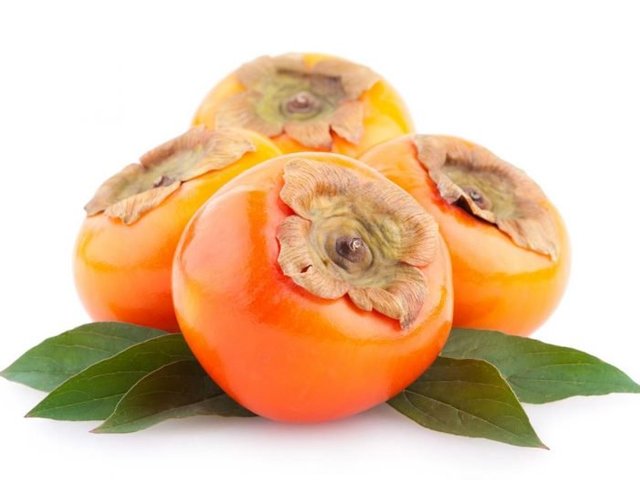7 Health Benefits Of Japanese Persimmon
The Japanese persimmon (Diospyros kaki) is a sweet, slightly tangy fruit with a soft to sporadically fibrous texture. Native to China, this fruit is now cultivated in many regions like East Asia, California, Europe, and Brazil.
The Japanese persimmon (Diospyros kaki) is a sweet, slightly tangy fruit with a soft to sporadically fibrous texture. Native to China, this fruit is now cultivated in many regions like East Asia, California, Europe, and Brazil. When ripe, this fruit contains thick pulpy jelly encased in a waxy thin-skinned shell. This smooth, shiny, thin shell ranges from yellow to red-orange. The slightly lighter fleshed fruits can contain up to eight seeds and may have a biting taste. As the fruit matures, the fruit softens, similar to a kiwifruit.
Here are 7 health benefits of the Japanese persimmon.
Persimmons can help improve your blood circulation.
Persimmons can act as a vasodilator with the increased amounts of potassium. Vasodilators decrease vascular resistance, increasing blood flow and circulation. This reduces the risk of atherosclerosis, strokes, and heart attacks. One persimmon fruit contains 270 milligrams of potassium, compared to just 1.7 milligrams of sodium.
Persimmons can help improve your digestion.
Like most vegetables, persimmons are a good source of fiber. One persimmon fruit contains 6 grams of fiber. Fiber can help prevent constipation and stimulates the contractions of the smooth muscles that forces food through your system. The daily recommended fiber intake for men and women are 38 grams and 25 grams, respectively.
Persimmons can assist in the antioxidant defense.
One persimmon fruit contains 30 percent of the mineral manganese, which is an essential cofactor in a number of enzymes important in energy production and antioxidant defenses.
Persimmons can help ward off cancer.
The beta-carotene found in persimmons have been associated with reduced risk of several cancers. Researchers have suggested that increasing beta-carotene consumption from 1.7 to 2.7 milligrams per day reduced lung cancer risk by more than 40 percent.
Persimmons can help keep your eyes healthy.
Persimmons are rich in vitamin A with 55 percent of the recommended need per serving. Vitamin A is known for improving one’s eyesight and preventing night blindness from developing as we age. Zeaxanthin, found in persimmons, is directly linked to improved eye health due to its behavior as an antioxidant substance. Research has suggested that zeaxanthin reduces the risk of macular degeneration, cataracts, and night blindness.
Persimmons can help boost your immune system.
Persimmons are a good source of vitamin C, which stimulates the activity of white blood cells to fight infection. Also, persimmons contain a number of antiseptic and antibacterial abilities.
Persimmon is loaded with B-vitamin components.
Persimmon is a good source of B-vitamin complex elements, riboflavin, and niacin. Niacin has been known to increase an individual’s “good” cholesterol and reduce the risk of cardiovascular problems. A deficiency in niacin leads to Pellagra - a disease characterized by diarrhea, dementia, dermatitis, and insomnia, the inability to sleep. Persimmon is also a good source of folic acid. Folic acid helps the body to produce healthy red blood cells and prevents anemia. It is also important for aiding rapid cell division and growth, such as during infancy and pregnancy. A deficiency of folic acid in pregnant women can lead to the birth of underweight infants and may also result in neural tube defects in newborns.
References:
Persimmons, japanese, raw Nutrition Facts & Calories. (n.d.). Retrieved September 22, 2017, from http://nutritiondata.self.com/facts/fruits-and-fruit-juices/2016/2
Lam, K. W., & But, P. (1999). The content of zeaxanthin in Gou Qi Zi, a potential health benefit to improve visual acuity. Food Chemistry, 67(2), 173-176.
Chen, W. T., Brace, R. A., Scott, J. B., Anderson, D. K., & Haddy, F. J. (1972). The mechanism of the vasodilator action of potassium. Proceedings of the Society for Experimental Biology and Medicine, 140(3), 820-824.
Gorinstein, S., Zemser, M., Haruenkit, R., Chuthakorn, R., Grauer, F., Martin-Belloso, O., & Trakhtenberg, S. (1999). Comparative content of total polyphenols and dietary fiber in tropical fruits and persimmon. The Journal of nutritional biochemistry, 10(6), 367-371.
Lam, K. W., & But, P. (1999). The content of zeaxanthin in Gou Qi Zi, a potential health benefit to improve visual acuity. Food Chemistry, 67(2), 173-176.